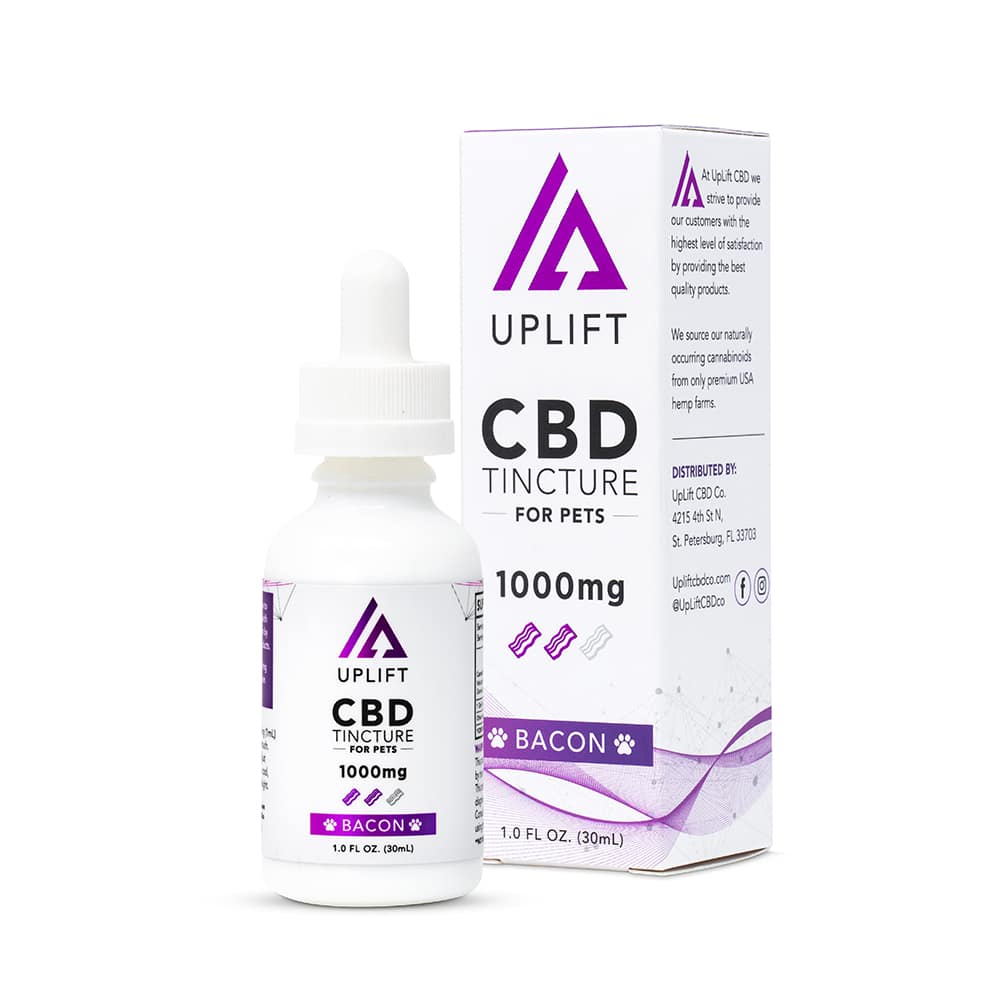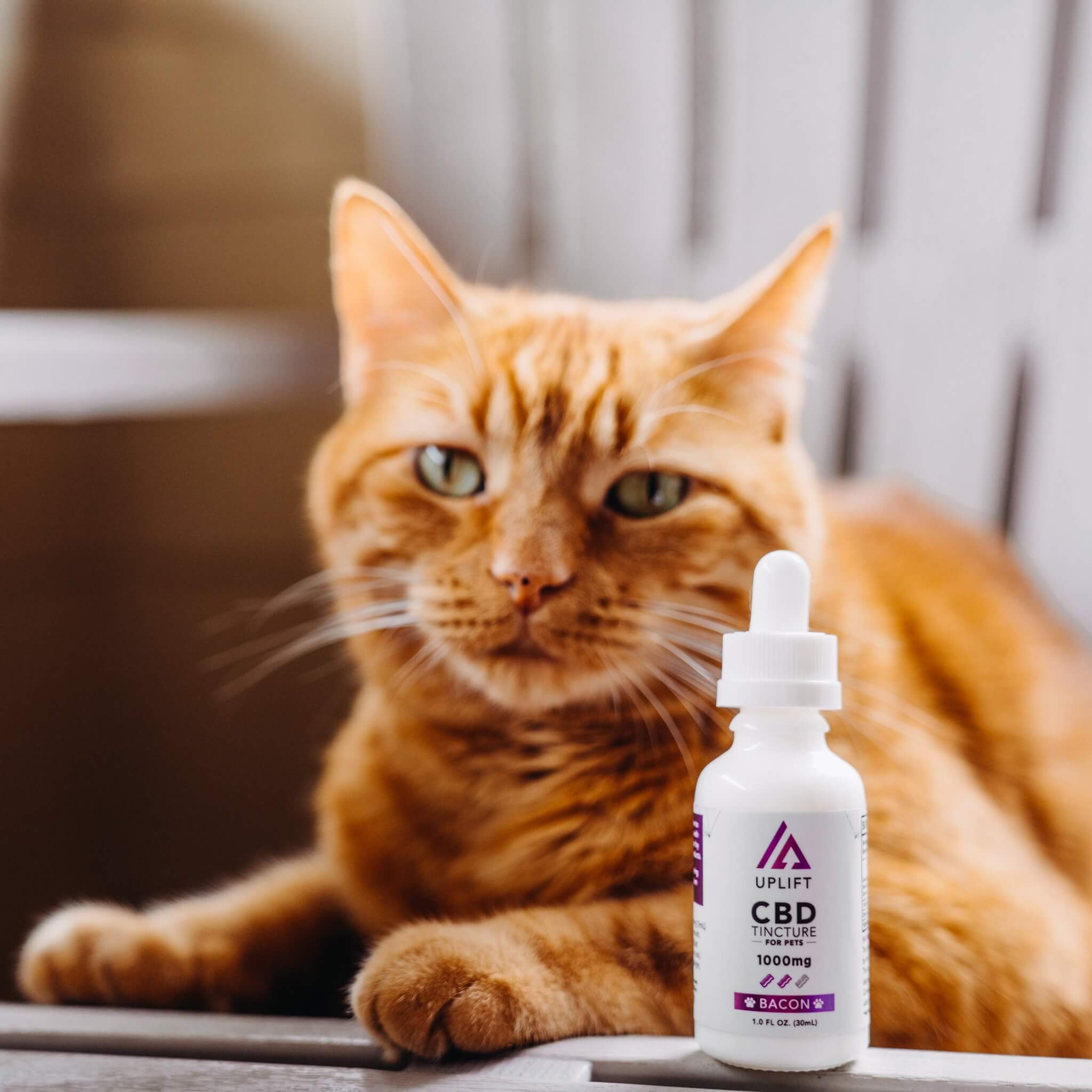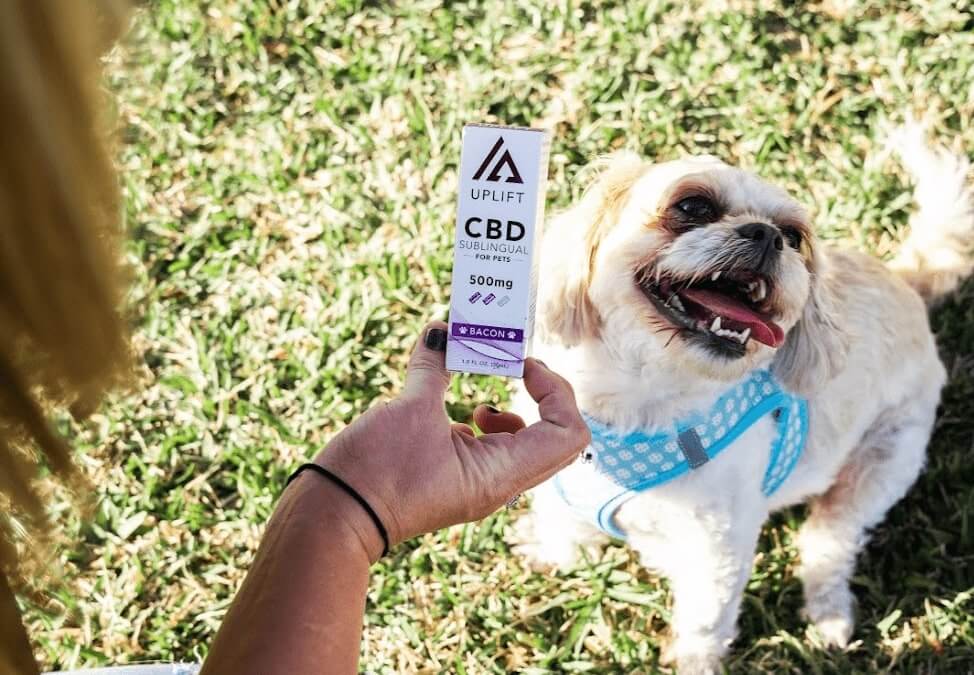Navigating the vast expanse of information on the internet regarding CBD products for pets can be a challenging task, as the line between fact and fiction becomes increasingly blurred. As a caring and conscientious dog owner, naturally, you desire nothing but the finest for your beloved companion. Consequently, you may find yourself pondering over a crucial question: What essential knowledge should I acquire concerning CBD oil?
In this regard, Dr. Jerry Klein, a distinguished figure serving as the Chief Veterinary Officer for AKC, imparts invaluable wisdom pertaining to CBD oil, shedding light on its advantages and potential drawbacks.
What Is CBD Oil?
Cannabidiol (also known as CBD) is a substance found in hemp and cannabis. Dr. Klein, emphasizes the importance of noting that, in most cases, CBD oil does not contain Delta-9-tetrahydrocannabinol (THC), the compound responsible for marijuana’s psychoactive properties. It is worth mentioning that the majority of CBD products are derived from hemp rather than marijuana.
What Is the Effect of CBD on Dogs?
There has not been a formal study conducted on the effects of CBD on dogs. However, scientists understand that cannabinoids interact with receptors in the peripheral and central nervous systems of the endocannabinoid system. This interaction assists in maintaining the body’s balance and overall health.
What Dog Health Problems Can CBD Oil Treat?
There are no scientific studies that definitively prove CBD can be used to treat dogs. However, dog owners have reported anecdotal evidence of its ability to reduce pain, particularly neuropathic pain, and control seizures.
Dr. Klein explains that CBD may also have anti-inflammatory effects, potential heart benefits, anti-nausea properties, appetite stimulation, and anti-anxiety effects. However, there is currently no conclusive evidence supporting these uses.
To address this lack of scientific data, the AKC Canine Health Foundation is funding a study at Colorado State University’s College of Veterinary Medicine and Biomedical Sciences. This study aims to evaluate the use of CBD for the treatment of epileptic canines that do not respond to conventional treatments. The CHF hopes that this study will provide the first scientific data on the use of CBD for dogs with this condition.
GET YOURS HERE!
Canine CBD Side Effects
There are no scientific studies specifically on CBD’s side effects for dogs. However, it is known that CBD can have side effects on humans. It is important to note that while using CBD for dogs, it is advisable to follow dosage guidelines to minimize any potential side effects.
- Dry mouth: Research suggests that CBD can reduce saliva production, leading to increased thirst in dogs.
- Lower blood pressure: High doses of CBD have been reported to temporarily lower blood pressure. Although the drop in blood pressure is not significant, it may cause a temporary feeling of lightheadedness.
- Drowsiness: Dog owners often use CBD to treat anxiety, as it has calming effects. However, in higher doses, CBD can cause slight drowsiness.
Risks of Using CBD Oil for Dogs
CBD has not been extensively studied for its safety or potential risks in dogs. The U.S. Food and Drug Administration (FDA) has not approved CBD for canine use and has not issued a standardized dosage chart. Consequently, the toxic dose of CBD for dogs is unknown. It is important to remember that every medication or supplement carries the possibility of an adverse reaction.
CBD Products on the Market
When purchasing CBD oil, you will want to consider a few factors. You’ll need high-quality CBD oils to get the best results.
- Search for organic: Even if the CBD oil you are purchasing is not labeled as organic, it should still be free from pesticides or fungicides.
- Avoid choosing solely based on price: Higher quality CBD products will generally come at a higher cost. Cheaper options may contain harmful substances such as pesticides or herbicides. Additionally, check for any additives in the CBD oil.
- Review the analysis: The manufacturer should provide a certification that verifies the amount of CBD present in the product. Some CBD products may contain only small amounts of CBD, so ensure that the product contains a sufficient quantity and minimal or no THC.
- Opt for CBD liquid: While CBD-infused dog treats are available, using CBD oil or tincture is generally the preferred method of administration. This allows you to adjust the dosage drop-by-drop according to your dog’s needs.
CBD Wellness Trend
Why is there so much buzz around CBD oil? According to Dr. Klein, the legalization of marijuana in many countries has sparked greater interest in marijuana-related products and their potential health benefits. As a result, CBD oil has gained significant attention. Dr. Klein suggests that we can expect increased interest in CBD in the future, along with more research on its effectiveness and various applications.
Can CBD Make My Pet High?
CBD, as mentioned earlier, does not induce a “high” feeling or euphoric sensation. However, some pet owners have reported that their pets may appear slightly disoriented after taking CBD. There is a logical explanation for this phenomenon.
If a CBD product is labeled as “full spectrum,” it means it may contain up to 0.3% THC. This concentration is legally permitted according to the Agriculture Improvement Act of 2018. The presence of a small amount of THC in the product can potentially cause side effects, particularly in pets that are more sensitive to its effects.
What Are the Different Forms of CBD Available for Pets?
If your veterinarian recommends CBD for your pet, there are numerous CBD products available specifically designed for pets. These options include oils, treats, and topical products such as lotions, gels, and creams. CBD is typically administered orally or sublingually. When initially introducing CBD to your pet, bottled oils with droppers are often preferred. This allows for gradual dosage adjustment, unlike fixed-dose options such as capsules, tablets, or treatments.
For safe and reliable CBD products for pets, try Uplift’s CBD Tincture
We all love our pets! From a thunderstorm, and achy bones to other kinds of discomfort our tasty bacon flavored tincture is here to alleviate some of that stress from your favorite extended family member.
Our products are made with our 99%+ CBD and Organic MCT Oil (Coconut derived)* and are available in different flavors and strengths of 500mg, 1000mg, 1500mg. Sublingual tinctures interact with the entire endocannabinoid system and has been proven to be the best delivery method for widespread coverage. Each CBD tincture contains 30 servings and can be taken day or night, sublingually.
GET YOURS HERE!
Can I Use CBD Products for My Pets or Only CBD Products for Humans?
The CBD used in pet products is the same as the CBD found in products intended for humans. While it is possible to give your pet human CBD, it is crucial to follow any advice from your veterinarian. It is essential to carefully read the label of any product not specifically made for pets to ensure it does not contain ingredients that could be toxic to them. Such ingredients may include chocolate, certain essential oils, and artificial sweeteners.
Pet-specific CBD products, besides being free of these harmful ingredients, are often flavored to appeal to pets, such as fish or chicken chews. This helps make them more enticing for pets to consume, as some CBD products can have a grassy flavor that pets may find unpalatable. You can try hiding the CBD product in peanut butter or any other treat that your pet enjoys.
What CBD Dosage Is Recommended for Pets?
Further research is needed to establish more precise doses for CBD use in animals, as there are currently no FDA-approved products specifically for animals, and the safety and efficacy of these products remain uncertain. It is important to follow your veterinarian’s instructions if they recommend CBD for your pet, as dosing can vary depending on the specific reason for its use.
In a study examining the effects of CBD oil on osteoarthritis symptoms, researchers found that a dosage of 2 mg per kilogram of body weight, given twice daily, resulted in pain reduction in dogs without any reported side effects. However, it’s crucial to note that blood test results indicated the potential for liver damage, underscoring the importance of working closely with your veterinarian to monitor your pet’s health.
To ensure safety, it is recommended to start with a small dose of CBD and gradually increase it. For example, you can begin by giving your pet a quarter or half of the recommended dose to observe their reaction. If your pet does not experience symptom relief within 30-60 minutes, your vet may advise administering an additional dose.
As there is limited information on the maximum safe dose of CBD for animals due to the lack of extensive research, it is essential to consult with a veterinarian experienced in CBD usage for pets to determine the safest dosage for your pet’s specific needs.
What Problems With Pet Health Can CBD Help to Manage?
CBD offers benefits for pets with various health conditions, including but not limited to inflammation, seizures, pain relief, and anxiety reduction. The use of CBD to address pet health issues is based on the body’s endocannabinoid system (ECS), which aims to maintain balance in all bodily processes. CBD is believed to provide numerous advantages in this regard.
It is important to note that each pet’s ECS functions slightly differently, and CBD may be more effective for some pets than others.
Pain
Once absorbed into an animal’s system, CBD has the potential to reduce inflammation and provide pain relief. While experts are uncertain about the precise mechanisms through which CBD alleviates pain, they believe it interacts with the endocannabinoid system (ECS) and other nerves involved in pain sensations. Studies have indicated that reducing inflammation in the joints can help alleviate the pains and aches associated with osteoarthritis.
Anxiety
Just like humans, many pets also experience anxiety, which can result in various undesirable behaviors, including urinating incontinence. CBD is believed to have a calming effect on the nerves and can help alleviate anxiety in pets. According to experts, this may be attributed to CBD’s activation of the same brain areas as serotonin, the hormone that promotes feelings of happiness and relaxation.
Seizures
When used in conjunction with antiseizure medication, CBD has shown promise in reducing the frequency of seizures in dogs with epilepsy. Although experts are uncertain about the exact mechanism of action through which CBD treats seizures, they believe it may prevent the excessive firing of nerves in the brain and help regulate electrolyte levels.
In 2018, a prescription CBD drug called Epidiolex received FDA approval for the treatment of two severe seizure disorders in humans, namely Lennox-Gastaut Syndrome and Dravet Syndrome. However, it is important to note that Epidiolex is not recommended for pets due to the lack of studies conducted on its use in animals.
Can I Tell if CBD Helps My Pet?
Observing your pet’s behavior is the most effective way to gauge the effectiveness of CBD. Since our pets cannot communicate if they feel better, closely monitor their behavior after administering a CBD dose to assess any improvement in symptoms. It’s important to note that relief of symptoms can occur within 30 minutes or may take a few weeks.
CBD can affect each animal differently. You might need to experiment with various brands, dosages, or forms before finding the optimal one for your pet. Discovering the right product may require some time and patience, but the outcome is worthwhile when you witness your pet at their happiest.
Bottom Line
Recent research suggests that CBD may be beneficial for pets with various health conditions, including anxiety, chronic pain, and seizures. Although further research is needed to fully confirm the benefits of CBD, many pet owners already use it successfully.
Before incorporating CBD into your pet’s routine, it is important to consult with a veterinarian who has experience treating pets with CBD. This is necessary because these products have not been approved or reviewed by the FDA. Working together with your veterinarian, you can develop an effective plan to help improve your pet’s well-being.
About Our Pet CBD Products
Our Pet CBD isolate is cannabidiol in its purest form. Isolates contain only one cannabinoid: CBD. This means that CBD isolate does not contain any THC, a psychoactive cannabinoid, making CBD isolate a perfect option for those who seek a THC-free product.
All of Uplift CBD’s Tinctures are in a one-ounce bottle and contain 30, 1mL servings made with organic ingredients. The dropper applicator has measurement markers on it (0.25, 0.50, 0.75, and 1mL), allowing for accuracy and flexibility for serving sizes.
Servings:
30 – 1 ml servings
Milligrams per dropper:
500mg = 16.66mg of CBD per 1ml dropper
1000mg= 33.33mg of CBD per 1ml dropper
1500mg = 50mg of CBD per 1ml dropper
Flavors:
Bacon
Flavored Ingredients:
Medium-Chain Triglyceride MCT Oil (Coconut derived)*, Cannabidiol (CBD). Bacon Flavoring.
- Available in 3 Strengths: 500mg, 1000mg, 1500mg
- THC Free eliminating any psychoactive ingredients
- 100% Organic, Gluten Free, Non-GMO
- Third party Lab-tested for purity and potency. Certificate of Analysis (COA)



